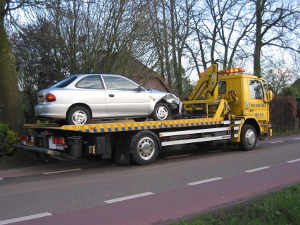Why Have More Than 214,000 UK Vehicles Been Seized By Police in 2023?

A startling 214,051 vehicles were seized last year alone, according to a recent Freedom of Information (FOI) request to UK police forces.
These seizures were due to many reasons, such as failure to pay road tax or car insurance, driving without a valid license, and even vehicle theft – which impacts insurance policy prices.
The data obtained by National Scrap Car sheds light on the scope of vehicle seizures nationwide. Approximately 23 of the 45 police forces surveyed provided data.
Alarmingly, despite the staggering numbers, only 59% of confiscated vehicles were returned to their rightful owners. This occurred even with amendments to rules in April, which imposed a £192 fee to reclaim seized vehicles and an additional £26 daily storage charge.
Interestingly, 17% of seized vehicles met their end at the hands of law enforcement, while 6% were sold at motor trade auctions, indicating the severity of the offences involved.
Regionally, Dundee in Scotland topped the charts with 23,000 seizures, followed closely by the West Midlands, Greater Manchester, and West Yorkshire. Warwickshire reported the lowest seizure count at 1,680, followed by Suffolk, Wiltshire, Surrey, North Wales, and Durham. North Wales and Suffolk experienced a decline in seizures compared to the previous year.
The analysis also revealed regional disparities in vehicle destruction and auction rates post-seizure. The West Midlands, West Yorkshire, and Lancashire led in vehicle destruction, while Beds, Hers and Cambs, Dundee, and West Yorkshire saw the highest number of auctioned vehicles.
The issue of Vehicle Excise Duty (VED) evasion further compounds these statistics. VED evasion costs the UK an estimated £119 million annually, with 719,000 unlicensed vehicles using the roads. The DVLA enforces penalties for driving without road tax, with fines reaching up to £2,500.

Driving a vehicle without tax or a valid SORN (Statutory Off Road Notification) can result in hefty fines for motorists, clamping, or even prosecution. Moreover, purchasing a used vehicle now requires immediate taxation, as owners can no longer transfer tax.
Understanding road tax regulations is crucial for all vehicle owners. While exemptions exist for certain circumstances, such as pre-booked MOT appointments or disability, compliance with road tax laws is paramount to avoid penalties and legal and insurance policy consequences.
As law enforcement adopts increasingly sophisticated methods, including Automatic Number Plate Recognition (ANPR) technology, to enforce road tax regulations and monitor poor driving, motorists must ensure compliance to evade fines and safeguard their vehicles from seizure.
Ensuring your private or motor trade vehicle is taxed, and road-legal not only upholds legal obligations but also contributes to safer roads and a fairer motoring environment for all.







